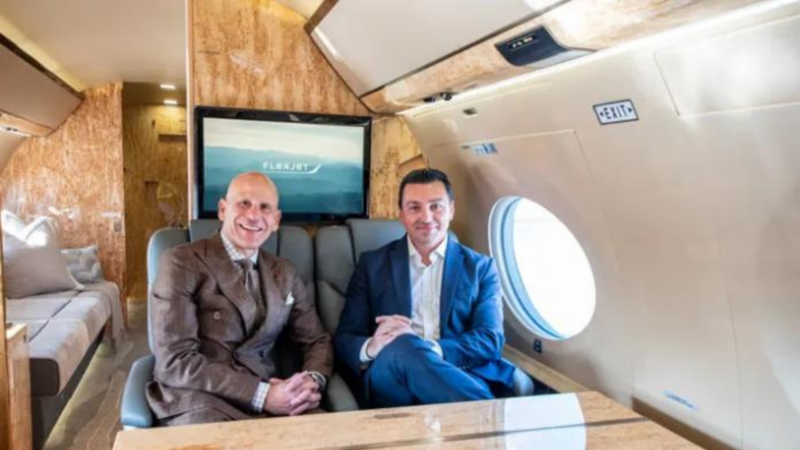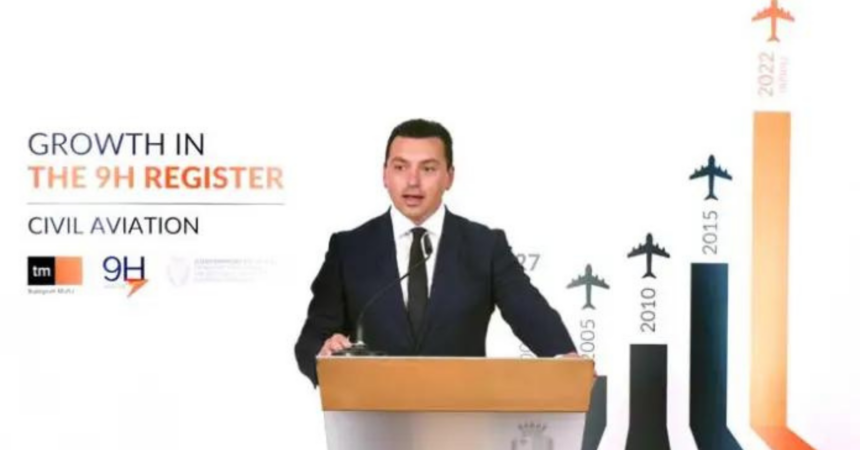Malta was flexing its socialist muscles again this week at the EU’s Transport Council, where Transport Minister Aaron Farrugia shot down a push led by Austria, France, and the Netherlands to tackle, better regulate and charge business aviation for its disproportionate CO2 emissions.
But according to Farrugia, Malta’s fleet of privately-operated jets is far too important for the islands’ connectivity.
“One must keep in mind that business aviation can also serve as an important transportation link in states where, like Malta, options for business transportation are limited,” Farrugia was quoted as saying this week in justification of Malta’s stance.
According to data from Dutch environmental consultancy CE Delft, Malta saw the third-highest amount of private jet flights per capita last year.
Private jets are five to 14 times more polluting than commercial planes on a per passenger basis according to Dutch environmental consultancy CE Delft.
The same report also shows the incredible growth in the number of private flights departing from Malta, which has grown tenfold in just two years – from just 217 in 2020 to 2,034 last year.
And the amount of CO2 emissions from such operations has increased in tandem – from 1,386 tonnes in 2020 to 14,715 tonnes in 2022.
Austria, France, and the Netherlands have, however, expressed an altogether different opinion.
They said in a statement that the “enormously high CO2 emissions per capita” from flying privately is unjust, as it means that a small number of people “cause great harm to the community”.
“Private jet flights are a hobby of the super-rich. But we can’t all pay for it,” said Austrian Climate Protection Minister Leonore Gewessler. “We need stricter rules here. Anyone who damages our climate must also make a fair contribution.”
“This form of air travel has an excessive per capita carbon footprint and is therefore rightfully subject to criticism,” the three ministers wrote.
“In view of this, recent calls for action such as establishing bans on private jet travel are understandable and need to be addressed appropriately.”

All aboard: Transport Minister Aaron Farrugia (right) aboard a Gulfstream G650 with Flexjet European Managing Director Marine Eugène last September.
Belgium and Ireland are reported to have expressed support for better and stronger environmental regulations on private jets.
But, Farrugia was quoted as adding, it must be ensured that climate action is “geographically just and does not economically impede on economic development, innovation, and the deployment of new technologies”.
The minister’s comment may be difficult to decipher, but Malta’s hands-off approach to cracking down on private jet emissions is a matter of protecting a relatively new and quickly-growing sector of the economy.
Where are they flying?
The most frequently used route for private aviation for last year’s 2,034 private jet departures left for London (207) which was followed closely by Mitiga, Libya. After that was Nice, France (138).
From the data available, there were also 118 private jet flights out to the Sicilian destinations of Comiso, Catania and Palermo.
London and Nice were the most popular destinations for private jets also in 2021, followed by Madrid.
‘Unfair luxury emissions of the super-rich’
Speaking in Luxembourg Thursday, French transport minister Clement Beaune said, “This is an area where we can symbolically show how we can work together to combat emissions.”
The view was echoed by Belgian mobility minister Georges Gilkinet, who said it was necessary for “everybody to pay the right price for their means of transport”.
“Our citizens would not be able to understand if a minority using private jets would be able to use these planes without any limitations, with a disproportionate impact on the climate,” he said.
“We have to show that climate efforts are shared out fairly, especially one year on from the explosion in energy prices.”
“This is another missed opportunity to target the unfair luxury emissions of the super-rich,” says Magdalena Heuwieser, spokesperson for Stay Grounded – a global network of more than 200 organisations aimed at reducing air traffic.
“But no need to wait for the EU level to ban private jets. As the success in Amsterdam shows, bans can also be implemented at airports as well as country level.”
Amsterdam’s Schiphol Airport is planning to stop private jet flights at certain times of day in a bid to reduce emissions from 2025. France, which recently banned short-haul domestic flights, is also looking to reduce private jet travel through heavy taxation and restrictions.
Amsterdam’s Schiphol Airport is planning to stop private jet flights at certain times of day from 2025 to reduce emissions. France, which recently banned short-haul domestic flights, is also looking to reduce private jet travel through heavy taxation and restrictions.













What a hypocritical position the so-called Minister of Transportation Aaron Farrugia is taking here.
One look at the over one hundred daily departures and another over 100 daily landings here on Malta 🇲🇹 is enough to prove him wrong. ( https://www.maltairport.com/passenger/flights-landing/arrivals-departures/?tab=departures)
Once again, the others should tighten their belts, so that there can be a “business as usual”.
Everywhere in Europe the conviction becomes louder:
The world can no longer afford these outrageous rich.
The fact is:
The richest 1 percent is damaging the climate twice as much as the poorer half.
No spelling mistake:
The richest 1 percent is damaging the climate twice as much as the poorer half.
We cannot afford the rich any longer!
Is it correct to ask how many of the persons using these flight have Maltese Citizenship by birth?
They need to keep them on side in case we have a flurry of escapees to Dubai or Jordan in the middle of the night, the noose is getting tighter and they may need to upsize the aircraft.
Who are the passengers on the private jets? What is their business in Malta? This large number of trips sounds sinister to me.
The high pollution created by the super rich has to be curtailed. The minister is not clever enough to balance off the net economic contribution when one takes into consideration the economic cost of the deterioration of our general health and the quality of life.
3% of the world population possess 90% of the world’s wealth, and one may question where in most cases such wealth is sourced, and find out that the source in most cases arises through illicit activities.
Unfortunately our government expresses its successes in numbers in everything, irrespective of the harm done to the common good.
I ask: where is the preferential option of the poor? Surely this is not achieved by a petty cash gift on the principle that ‘money talks’.
Godfrey you are absolutely right. Also as you say, the minister is not clever enough in a great many things, however this is to be expected in a gahan appointee who only reads his wage slip and his ratings in the latest survey. Donkeys bray and do little else, your comment is way above his reasoning level and will probably be totally wasted.
It rather looks that not only is ‘the Minister not clever enough’ to acknowledge the harm caused by the increasing use of private jets.
It also appears – perhaps even more clearly – that he does not know what he is talking about and, still less, to what extent the luxury life-style enjoyed by the super-rich is harming the collective effort to reverse the worsening climate change by those who are aware of it.
As usual we get our priorities muddled up. The minister should be making a case for our national airline which keeps the island connected to rest of world and which is affordable to the majority of citizens unlike the private jets affordable to a select few.
Private jets are used by busy people with tight schedules, the don’t have time to wait 3 hours at an airport, they pay over and above for their flight and carbon offsetting is worked into the price. The question should be, where is the money going for carbon offsetting because I certainly don’t see the amount of trees being planted that where promised, the last time he attended an aviation conference and promised this would be done.
No problem, jets coming from Ireland, France, and Germany will apply the general principle “polluter-payer” whatever is their destination, Malta included. The fleet located here will be exclusively flying to Lybia to avoid environmental taxation.
A step forward isolation. Another bright idea.
Furthermore, why those private jets are benefitting from a subsidized kerosene on top of their free super pollution? Do the average Maltese needs to finance super rich people way of traveling?